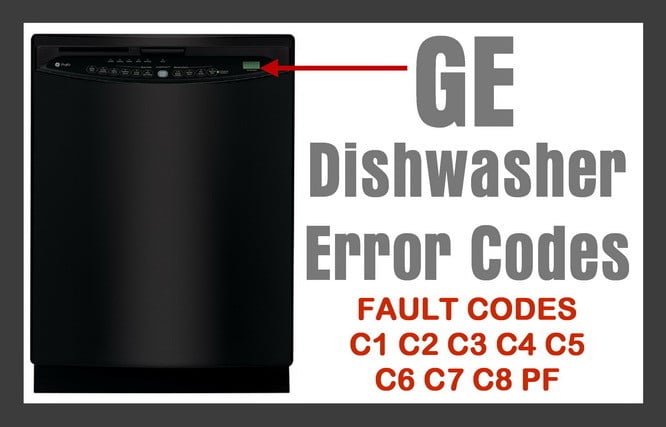
You might be wondering, “What does this E3 code mean, and should I be worried?” The error code E3 often relates to a problem with the dishwasher’s heating element. This little component is crucial because it helps to warm up the water during a wash cycle, ensuring your dishes come out not just clean, but also hygienically sanitized. When something goes wrong here, you might notice your dishwasher isn’t quite up to its usual sparkling standards.
Understanding the E3 Error Code
An error code can feel like your dishwasher’s way of waving a little red flag at you. Think of it as the appliance’s way of saying, “Hey, I need some attention here!” The GE dishwasher error code E3 usually indicates an issue with the heating element, suggesting that the water inside the dishwasher isn’t getting hot enough. Water temperature plays a critical role in cleaning effectiveness, much like how hot water dissolves sugar faster than cold in your favorite cup of tea.
So, why is this heating element so important? Imagine washing a greasy pan with cold water — not quite effective, right? Similarly, the heating element ensures that the water reaches a temperature that can effectively break down food particles, grease, and bacteria on your dishes. If it’s not working, your dishwasher might run a full cycle without achieving the thorough clean you expect.
Although it might be tempting to ignore that little code and carry on using the machine, it’s essential to address the issue. Continued use could leave you with less-than-clean dishes and might even lead to further damage to the appliance. Checking out what’s going on could save you from bigger headaches down the road!
Is It Safe to Continue Using the Dishwasher?
You might be thinking, “Is it really a big deal if I keep using the dishwasher with this error?” Well, here’s the deal: using your GE dishwasher with the E3 error code still active isn’t recommended. Safety and efficiency are two main reasons you’d want to address this error as soon as possible. Operating with an identified malfunction such as this can potentially lead to more severe issues, both with the cleanliness of your dishes and the performance of the appliance itself.
If the heating element is faulty, your dishwasher may struggle to reach the high temperatures needed to sanitize your dishes effectively. It’s like trying to wash your hands in cold water — not quite effective, right? Moreover, continuous operation in this state risks further deterioration of the machine. Small problems often snowball into significant repairs if left unchecked, just like a tiny crack in a windowpane can eventually spread to the entire glass.
So, what’s the safest course of action? First, consider consulting the dishwasher’s manual or reaching out to GE customer support. They can provide specific guidance and help determine if a professional repair is needed. Taking these steps can prevent additional issues and ensure your appliance is back to its optimal performance.
Troubleshooting and Solving the E3 Error
Let’s explore some steps you can take to troubleshoot and potentially solve the problem yourself, especially if you’re feeling a bit handy. First, ensure that your dishwasher is off and unplugged from the electrical outlet — safety first, always! Once you’re sure it’s safe, you might want to check the wiring connected to the heating element. Any loose or damaged connections could be contributing to the error code.
Another step is to inspect the heating element itself. Look for any visible signs of damage such as cracking or burning. A damaged heating element will likely need replacing, much like how a burnt-out light bulb can’t simply be fixed once it’s out. Replacing the element might sound daunting, but with the right guide or professional assistance, it’s a totally doable task.
If these initial checks don’t resolve the issue, it might be time to call in a professional appliance repair technician. They possess the expertise and tools to safely and effectively identify and address the problem. While DIY fixes can be rewarding, knowing when to call in an expert can save time and prevent potential mishaps.
Preventing Future Errors
Once the problem is solved, you’ll want to keep your dishwasher in tip-top shape to avoid future headaches. Regular maintenance is key — think of it like giving your car a regular oil change to keep it running smoothly. Regularly clean the filter, check for clogs, and ensure that the inside of the dishwasher is free of leftover food particles. This basic upkeep can go a long way in preventing future error codes.
Additionally, running a hot water cycle occasionally can help clear any build-up in the system, similar to how a hot shower can help clear up a stuffy nose. Keeping a close eye on your dishwasher’s performance and addressing small issues as they arise can help prolong its life and ensure it continues to serve you well.
So, if you encounter the E3 error code again, you’ll be prepared and not caught off guard. By staying vigilant and proactive, you can ensure your GE dishwasher remains a helpful and reliable friend in your kitchen for many years to come.